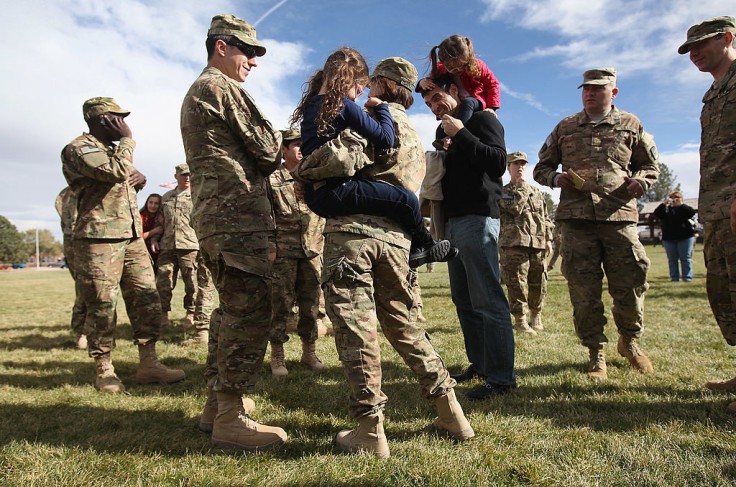
Soldier parents, especially soldier moms, will now enjoy better benefits and flexibility when it comes to caring for their children following the signing of a new U.S. Army Parenthood, Pregnancy and Postpartum Army Directive.
Army Secretary Christine Wormuth signed the updated guidelines Tuesday, April 19, after months of dialogues with soldier parents. That dialogue spawned almost half of the 12 new components of the Parenthood, Pregnancy and Postpartum Army Directive. The rest of the components are updates to existing policies.
Among the changes to the directive include a one-year deferment on deployments for soldier moms who have just given birth. Instead, they will be allowed to take normal work hours that won't strip their time away from a growing baby.
Pregnant soldiers won't have to alter their dress uniforms because they will no longer be required to wear one during their pregnancy term and one year postpartum. Soldier families may also receive support for family care and fertility treatments, as well as extended leaves for a miscarriage or other family-related issues.
Army installations will need to provide designated lactation areas for babies and feeding areas for toddlers who are starting with solids. Soldier parents who have not given birth, such as foster parents, adoptive parents and single parents, will also benefit from the changes.
Doing Away with a "Myopic View" of Soldier Moms
Lt. Megan Gephart, a soldier mom with two sons, helped craft the directive to ensure that the U.S. Army can still accommodate service personnel who have leadership qualities and who could defend the country. After coaching and training a lot of pregnant and postpartum sportspeople, Gephart said that it's time for the Army culture to embrace these changes and not have a myopic view of the capabilities of women.
@SecArmy signed the Army’s Parenthood, Pregnancy and Postpartum directive.
— U.S. Army (@USArmy) April 21, 2022
The directive contains 12 components that makes a number of significant policy changes and program improvements.
Release ▶️ : https://t.co/lUWkEKqyv5 pic.twitter.com/MbNUuuEfsm
According to USA Today, about 18.4 percent of the 182,000 women in service in the U.S. Army become pregnant at any given time and about 400,000 of the soldiers are parents. Top officials in the Army believe that these updates are a sound investment to the health and wellness of the soldier parents. This will also help with personnel retention and reduce the number of soldiers quitting to start a family.
"If we want to continue to be the most effective fighting force on the planet, we have to continue to look at ways to diversify," Lt. Col. Scott Stephens, who also helped author the guidelines, said.
"They Actually Listened!"
Army Sgt. Nicole Pierce, whose popular website The Army Mom Life, told Military.Com that it was "pretty cool" to receive resounding feedback from the dialogue. Those who make the decisions for the Army "actually listened" and then made the changes to the regulations.
Before these changes, the mom of two said that she was at least two years behind in her military career's progression compared to her contemporaries. She had back-to-back pregnancies during her seven years in the service.
Pierce's website was instrumental in starting the conversation about the plight of soldier parents and soldier moms. Over the years, her site became a platform for military families to share their experiences. It became a community for military parents that inspired them to ask for the changes.